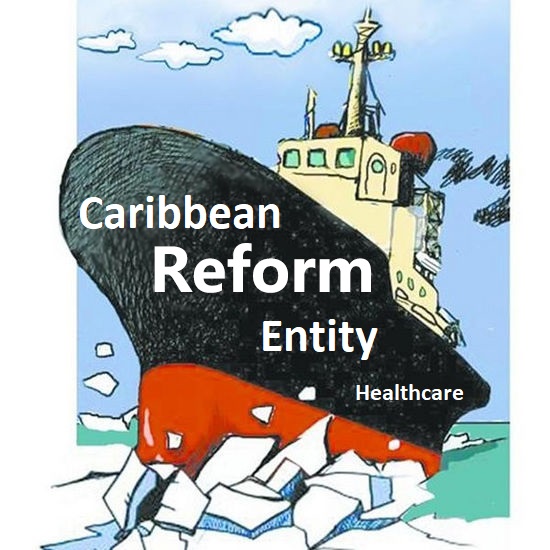Reform Entity: healthcare and education systems need improvement

PHILIPSBURG – The Caribbean Reform Entity (CRE) – if it ever becomes a reality – will take measures to reform the education systems in Curacao, Aruba, and St. Maarten and also look for ways to improve the healthcare system on the islands; all this, according to the document that outlines the intentions of the CRE, in consultation with the countries.
The CRE-document notes that the COVID-19 crisis has made the shortcomings in the healthcare systems painfully clear. To keep this crisis manageable St. Maarten has to execute the advice issued by the OMT (Outbreak Management Team).
Prof. Dr. Jaap van Dissel, director of the Center for Combating Infectious Diseases outlined in April in a 10-page letter to the ministries that deal with public health in Curacao, Aruba, and St. Maarten and the Netherlands what the bottlenecks on the islands are and how best to deal with them.
Van Dissel warns that there will probably be a long-lasting risk for the re-introduction of the corona-virus on the islands where a large part of the population is not immune.”Chances of an outbreak during the next one to two years are realistic,” he wrote.
The OMT recommends taking measures to contain the spread of the virus and preventing an overload of the healthcare system. Furthermore, the government should make sure that there is broad support for its measures among the population.
Relaxing containment-measures – like opening the borders for tourism – could potentially result in an increase in infections. In such a scenario, Van Dissel wrote, the government must be prepared to intensify interventions. “This is expected to be a process of pumping the brakes whereby the population and the government must be prepared to accept certain risks.”
Letting tourists in could lead to problems with the available care-capacity in the hospitals. Considering the lengthy treatment corona-patients require, this could in turn result in a capacity-shortage for the treatment of local patients.
“Opening the borders for tourism is not a realistic option because this could lead to a political and socially unacceptable risk and also to a real risk for the population. Measures to let tourists back in and at the same time prevent new cases seem currently difficult to realize.”
Against this background it is no wonder that the CRE wants to improve the healthcare systems on the islands. “The hospitals in the countries (and in Caribbean Netherlands) will have to work together to increase the supply, the quality and the effectiveness of the healthcare system,” the CRE-document states.
The CRE wants to develop a plan for regional cooperation between the hospitals in the Caribbean part of the kingdom. Part of this plan is the joint procurement of medication and the reduction of the number of laboratories.

The Reform Entity furthermore wants to tackle the education system. “There is no consistent quality of school management and teachers. The connection with the labor market leaves a lot to be desired and as a result, the labor potential is not fully exploited.”
The CRE wants a group of experts from the four countries in the kingdom to audit the education system. These experts will examine for instance the quality of education, the teaching methods and the effectiveness of funding. Another part of this plan is improving the quality of education through effective supervision.
###
Related articles:
Caribbean Reform Entity has 59 measures in mind
Knops issues tight deadlines for liquidity support conditions
Reform Entity wants to bring down Public Wage Bill to 10 percent of GDP
Reform Entity: Retirement age to 67 by 2025
Reform Entity tackles Chaos at Crime Fund
Reform Entity: Healthcare and Education Systems need improvement
Final review: Will the Caribbean Reform Entity become a reality?
Opinion by Hilbert Haar: “Rejected? Yes; no; well, maybe”


























